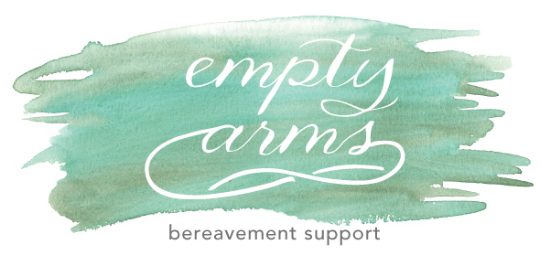By Sara Barry
Recently a friend asked if I had any advice about her son’s recent questions about his sister, the one who died before he was born. She worried that her answers weren’t enough, because he kept asking.
It reminded me of the raw, numb days right after Henry died, when my young neighbor would come in each morning to wait for his sister’s bus.
“’Enry ’ome?” he’d ask.
The first time he said it, I couldn’t breathe.
Each time he came, he’d ask again. I would say no and remind him that Henry was in heaven with Oma (his great-grandmother), which is how his parents had explained it to him. And he would walk over and look in the bassinet in the dining room, just to make sure. Then he would ask to see Henry’s other bed (the crib that used to be his), and we would go up and look at the crib. We’d come back down stairs and he’d ask for Henry again. And I would say that we could look at his pictures, so we’d go around and look at all the pictures.
He didn’t ask them to hurt me. He asked again and again, because that’s what young kids do. He asked because he was trying to understand.
I told my friend she didn’t need to give more answer, but just keep answering. Her son would let her know if he needed more.
I wonder sometimes what my kids make of having a brother who died, a brother they never knew.
When my daughter Kathleen was three months old, somebody asked me if we would talk about Henry and show Kathleen pictures of him when she was older. I smiled, because Henry was already part of her life.
From the beginning, we have talked about him with his sisters. They grew up with pictures of him around the house. He’s in the alphabet book I made for Kathleen and on the family photo blocks she played with. He’s in the songs we sing at night.
He’s not here, yet very present in our lives.
My girls can say to me at bedtime, “I’m sad I never got to know Henry” or ask how old he’d be.
When a friend looks at a picture of Henry and asks, “Who’s that?”, they answer matter of fact, “That’s Henry. He’s my brother. He died.” Or, as I overheard on the soccer field, “Well I don’t have a younger brother. I have an older brother and he’s dead.” A simple statement.
What I love about kids is that statements like this don’t stop conversation. Nobody stops doing cartwheels or eating snacks because you say, “My brother is dead.”
And yet . . . I wonder what is going on as their growing hearts and brains understand things in different ways. How does grief work when you never know the person who died, when you grow up with a person missing and grief around you?
I go looking for information about grief of siblings who never knew a baby brother or sister and find descriptions of replacement siblings.
My older daughter grew in me in that first year after Henry died. She grew from newborn to toddler as I navigated year 2 of grief. I know that I loved her fully and fiercely for herself not as a replacement, and still I wonder if my emotions in those early days, or even now, affect her in ways that will show up later.
After I wrote about the question “How Many Kids Do You Have?”, I worried. What if my kids read this someday and think they are my “just” two, that they are somehow less than because their brother died, when the truth is they fill my heart every day.
Because the paradox of having living children and one who died is that your heart is always missing someone and always full. I have three kids—and two. My heart is full and missing someone. I find joy and gratitude every day even as I recognize grief.
I am grateful to my girls for opening me wide again to joy, but I don’t love either of them because they took Henry’s place. I love them unconditionally and fully, each with their own space, each for their own being. Henry will always have a place in my heart. It isn’t their job to fill it, nor would I want them to. I want his space for him—and I want my girls to fill their own spaces.
I can wonder all I want how grief affects my kids, but the best I can do is listen to what they say, share my feelings honestly, and answer the questions they are asking as they grow and change and wonder differently.
How do you think having lost a sibling affects your living children?

Thank you for posting this. I lost my son Everett on 2/22/15. He was 9 months old. It was after 4 months of cancer taking over his little body. I became pregnant by July with his sister, Everly. Clearly, her name is in honor of him and yes, there are pictures of him everywhere in my home. My grief has manifested into productivity instead of sadness. I’m grateful for that most of the time but know there are times when I should be paying attention to her but I’m busy. I hope this does not affect her long term. She does get tons and tons of love, like 2 times the love, in my opinion, since her brother isn’t here to actually receive it. Anyway, I hope she grows up to be empathetic to others’ suffering. I don’t want her to feel too much pain, but i want her to know that life isn’t always gumballs and lollipops. That is what I want my grief to manifest as in her… empathy. I’m trying my best. xoxo